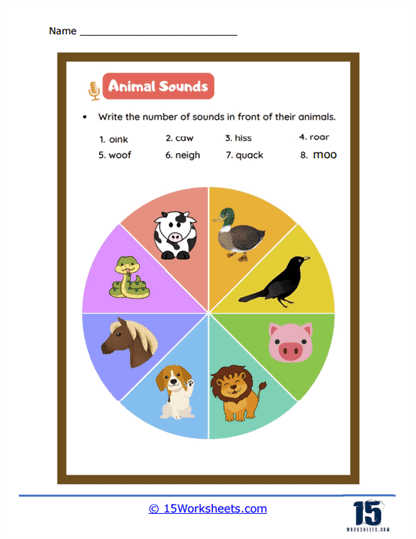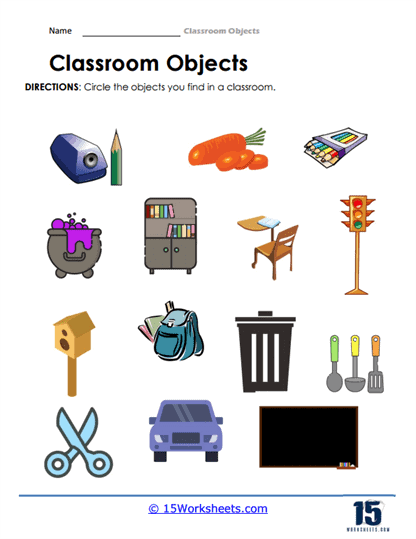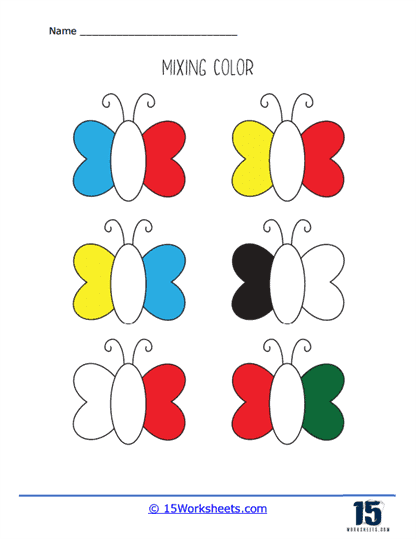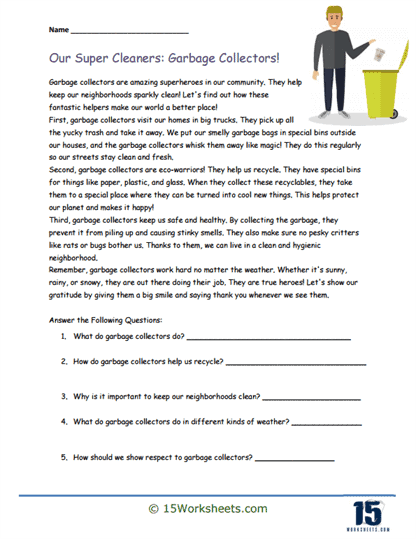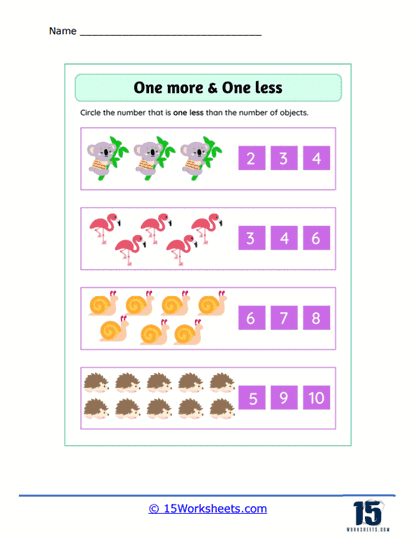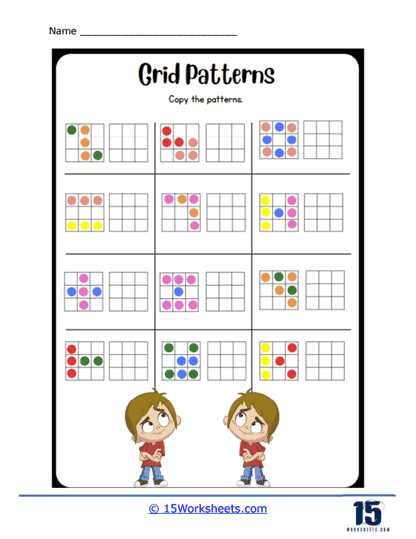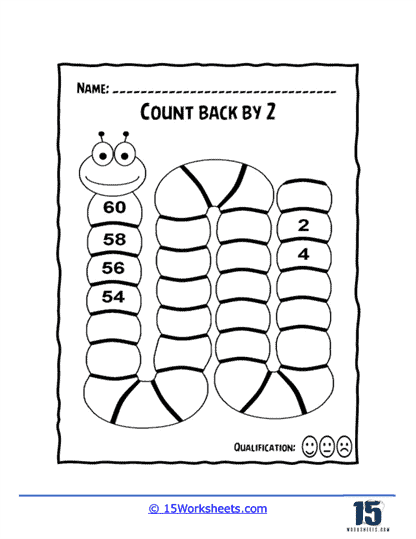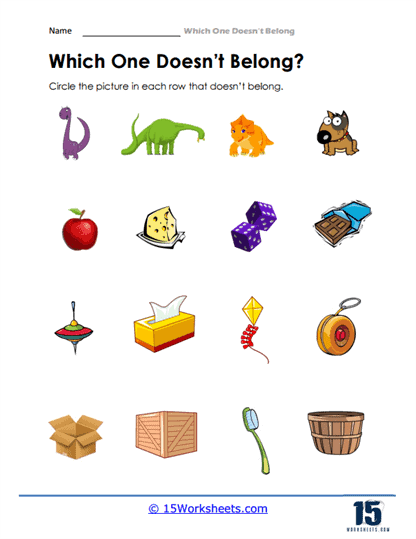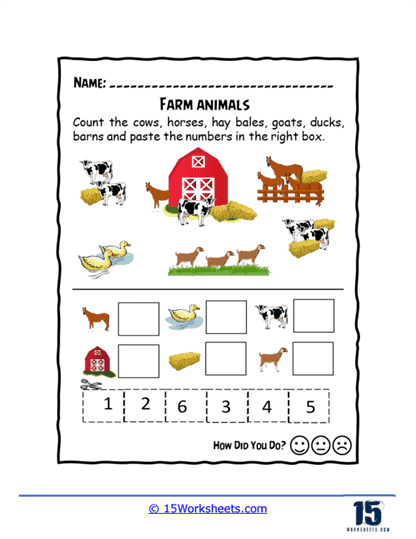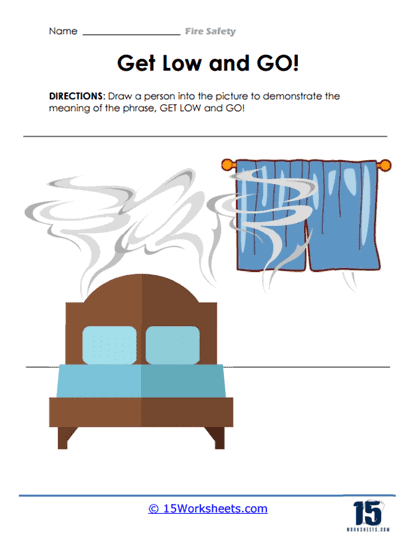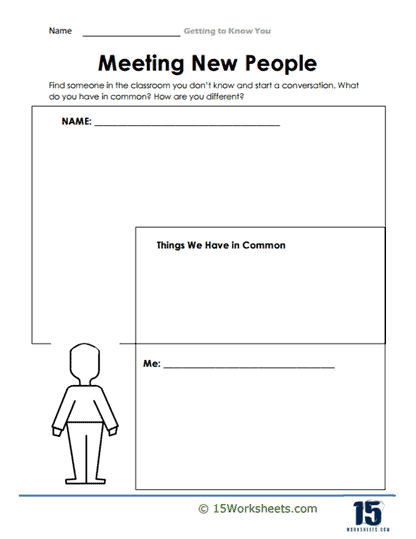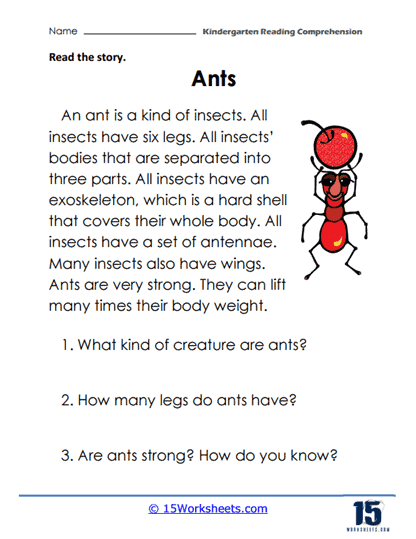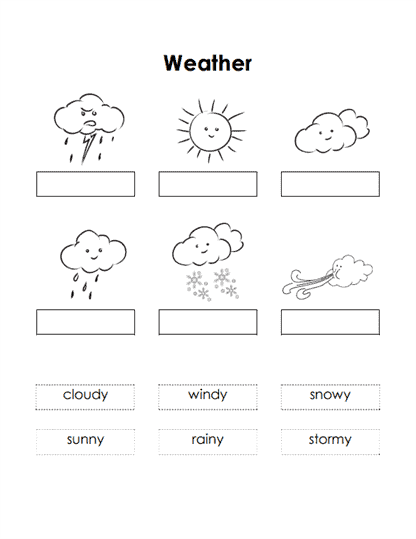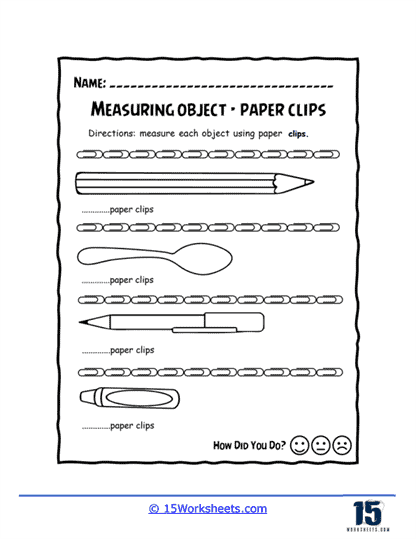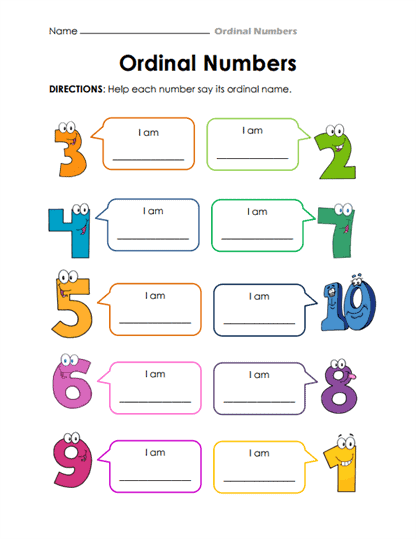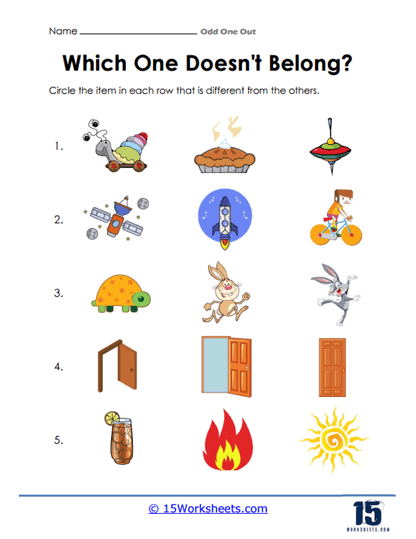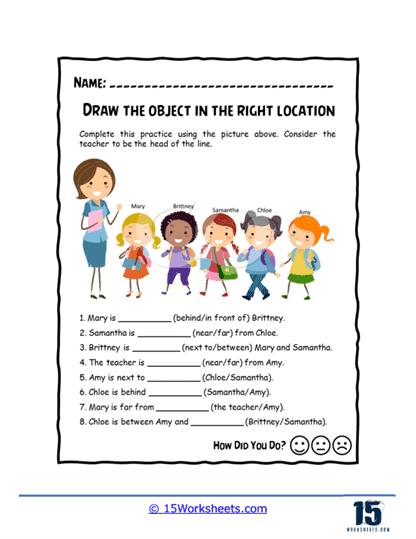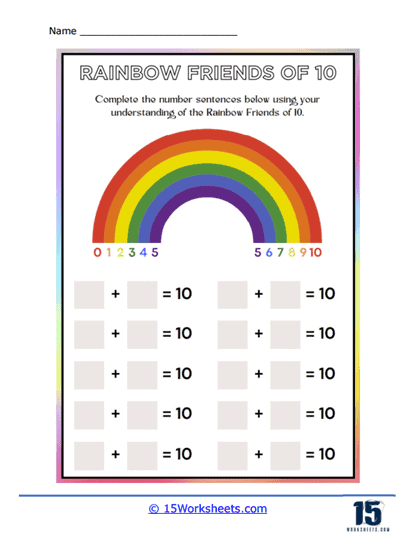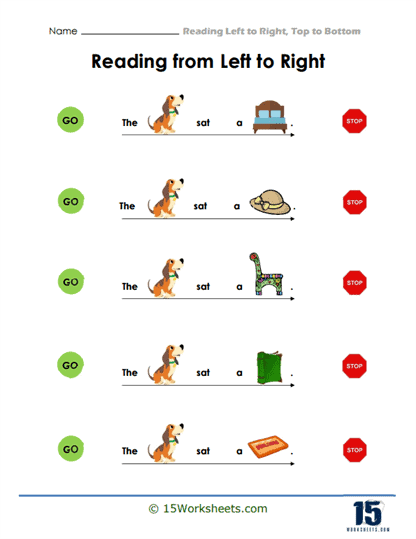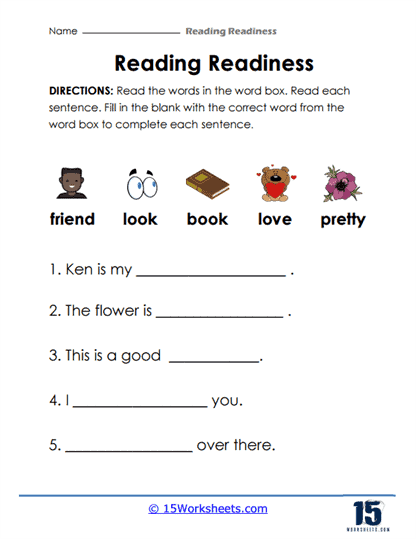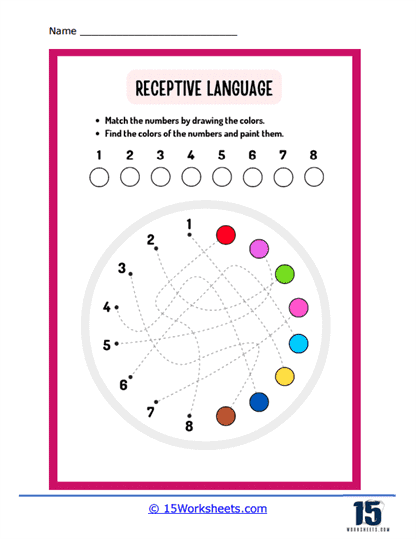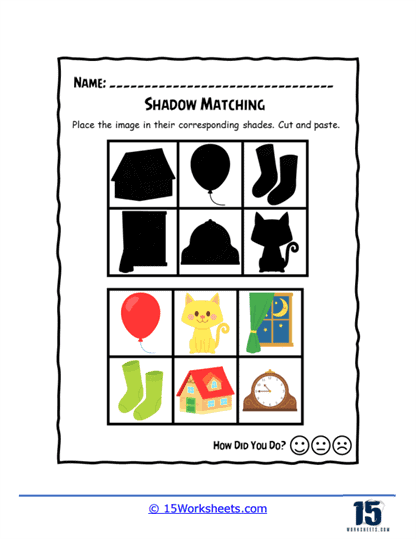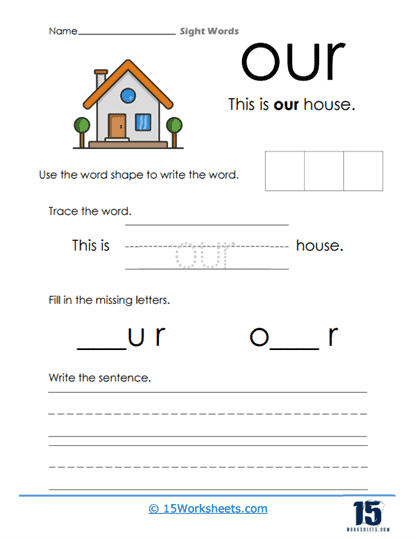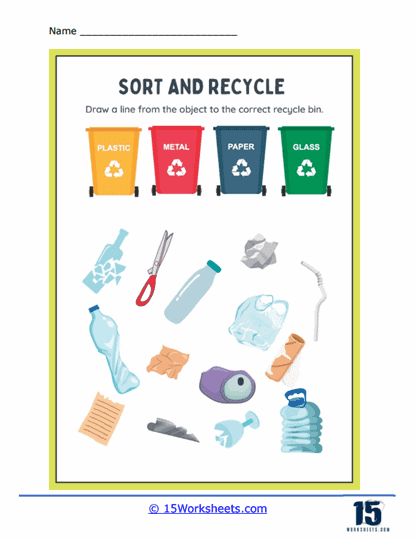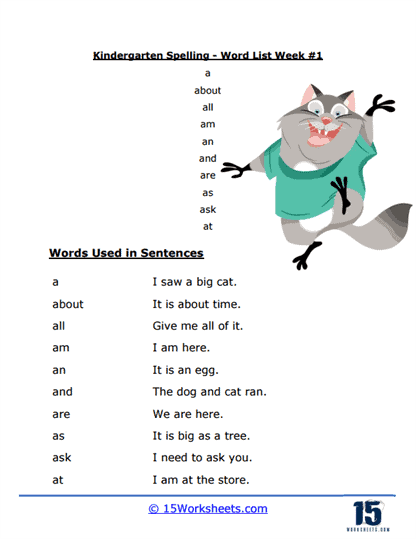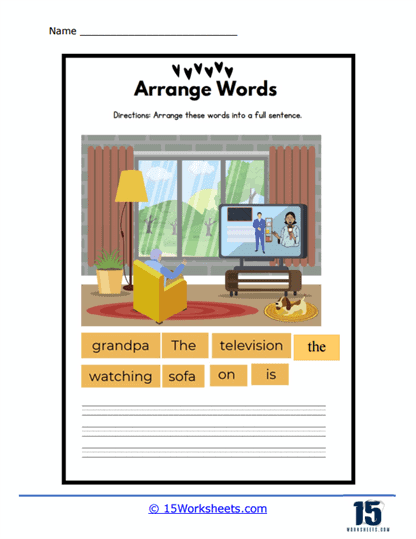Kindergarten Worksheets
About Our Kindergarten Worksheets
These worksheets cover a wide range of subjects and skills, including early literacy, numeracy, shapes, colors, basic science concepts, social skills, and more. They are intended to be interactive, engaging, and age-appropriate for young learners.
Engaging with worksheets before starting elementary school can prepare children for the structured learning environment they will encounter. Worksheets introduce them to educational concepts in a fun and interactive way.
Many kindergarten worksheets involve activities that require cutting, coloring, tracing, and drawing. These activities aid in the development of fine motor skills, which are essential for writing and other activities.
These worksheets help students match the sounds (in words) that many different familiar animals will make. The activities include cut and paste and matching items for students to have fun with.
We look at items and objects that should be very recognizable to students that have spent any amount of time in a classroom environment. We attach language and meaning to the physical environment of the children.
We introduce Kindergarteners to the world of red, orange, yellow, green, blue, indigo, and violet. These worksheets not only explore each of the primary and secondary colors, but also how to sort and mix common color combinations.
A collection of helpful worksheets for making the distinction between two or more objects, numbers, or items. We take both a mathematically and subjective approach to this topic over the course of the 15 activities.
We help students begin to use math in the form of basic logic. Students tip toe through understanding the concept of regularity of a particular sequence and learn how to determine the next logical item.
This is main section for all counting sheets. Students learn to count to 100 by individual numbers and skip counts. We also suggest techniques that can help them remember sequences.
Daily routine worksheets will help children establish and maintain consistent daily routines. These worksheets include a series visual schedules or charts that outline activities such as waking up, brushing teeth, eating meals, and going to bed. They help kids by providing a visual and structured way to understand and follow their daily tasks, promoting organization, time management, and a sense of security and predictability in their daily lives.
This is the foundational skill to help students learn how to classify and eventually sort items. The focus of these worksheets is on spotting the item that does not belong in a set and signifying it.
This is a both a language arts activity and swallow dive into some common vocabulary words for youngsters. Students will learn the name of very common animals that are commonly found on the farm and practice their writing skills.
This can play a crucial role in promoting fire safety awareness and preparing individuals to respond appropriately in case of a fire emergency.
Our human senses are like superpowers that help us understand the world around us. We have eyes to see beautiful colors and shapes, ears to hear sounds like music and laughter, a nose to smell yummy cookies and fresh flowers, a tongue to taste delicious foods, skin to feel things like soft blankets and tickles, and a body that helps us balance and not fall down. These worksheets explore these 5 human senses.
Food groups are different types of foods that give our bodies the energy and nutrients they need to grow strong and healthy. They are like teams of food that work together to keep us healthy. These worksheets explain all the different types of food groups and how to balance what we eat.
This is usually an activity you would do at the beginning of the school year to help students and teachers become more familiar with one another. It is also great to revisit when new students enter your class as well.
Kindergarten Reading Comprehension
These worksheets encourage students to take part in active reading and engage with text in a meaningful way. The topics that we cover are fun and students often enjoy our sheets. We offer plenty of practice for them.
Kindergarten Vocabulary Worksheets
These worksheets are specifically created for children in their first year of formal schooling, typically around the age of five or six, when they are just beginning to learn to read and write.
Kindergarten Word Search Worksheets
These are awesome little word puzzles that motivate students and improve letter and word recognition. It also helps kindergartners develop left to right reading skills.
At this level students are ready for the most basic forms of measurement such as classifying something longer than another object. We also approach nonstandard forms of measure such as using a reference tool. Students learn about the concept of seasons and months of the year.
This section of our website almost goes overboard on the concept of numeracy. Students will learn how to sort, sequence, and organize number. Students also learn how to write them in words and classify them.
Students begin to think for themselves by examining a series of objects in a set and determine which is odd in that context. Students incorporate the use of shapes, numbers, colors, and many other common attributes that we examine in kindergarten.
Students begin to learn about the concept of contrary in this section. We go over very basic topics that students will easily relate to.
These are unique sheets that combine elements of crossword puzzles and picture-based activities. They help students develop their vocabulary, spelling, and problem-solving skills in a visually engaging manner.
We help students learn relational vocabulary words in a physical context. This will help them better understand their world and become better communicators of the concept of location.
Who does not love these wonders? Students will learn language concepts related to this theme and they just might be on the look out for them after a sunny rainfall takes place.
We read from left to right because most languages, including English, are written that way. Our eyes naturally move in a left-to-right direction, and it has become the standard for how we take in things that we read or write. These worksheets help students get into this habit.
We take an inventory to see if our students are prepared to begin reading independently. We take a general approach to this which will work with most commonly used reading programs. The focus is on understanding where a student’s phonological awareness skills are at.
These worksheets will enhance a child’s ability to comprehend and understand spoken or written language. They feature exercises that require children to follow instructions, identify objects or concepts based on verbal or written cues, and develop their vocabulary and comprehension skills. They help kids by providing structured activities that promote listening, reading, and understanding, fostering stronger communication skills and improving overall language development.
Students match objects to the shadow that they would most likely cast in sunlight. This helps students improve their visual perception and discrimination skills.
These are the words that we our Kindergarteners to know when they see it from memory. These words are important to learn because they often cannot be sounded out phonetically and need to be recognized instantly by sight for efficient reading and comprehension.
These fluffy guys are just a bunch of fun. They can serve a great pivot to using and improving our language skills. We also include a math and science-based activity for you.
Sorting and Categorizing Worksheets
These worksheets are hands-on and visually appealing to keep young learners engaged and make learning fun. These activities provide a strong foundation for more complex cognitive skills and subject areas as students progress through their education.
We include 30 weekly spelling word lists for kindergarten teachers and parents. The words are all defined in simple terms for students. This will make for a great activity during the school year or over the course of a summer.
Visual Discrimination Worksheets
They are an effective way to enhance visual perceptual abilities and cognitive skills. They are often used in conjunction with hands-on activities and games to create a well-rounded approach to developing these skills.
We explore common vocabulary terms that are associated with this concept, and we use them in the context of a sentence. We also use this theme to graduate to journaling and explore our thoughts about weather with language.
We help students become much more familiar with their pencils. We spend a good amount of time learning to write our names. We also learn how to answer questions with written sentences to prompts that we may come across.

